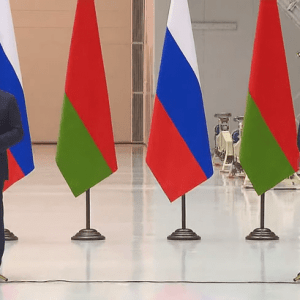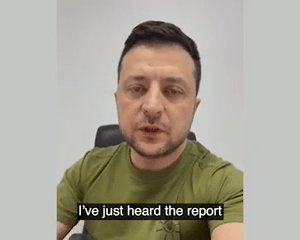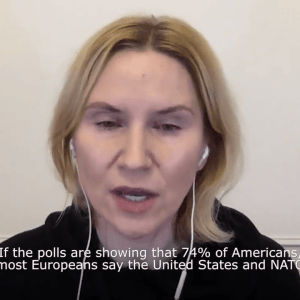Russian President Vladimir Putin has ordered troops into two rebel-held regions in eastern Ukraine, after recognising them as independent states.
In a long, late-night televised address from the Kremlin, Mr Putin sought to justify his actions by making a series of claims about Ukraine.
“The so-called civilised world… prefers to ignore it as if there were none of this horror, genocide that almost four million people are being subjected to”
President Putin was talking about the Donbas region of eastern Ukraine, claiming Russian-speaking residents there are being subjected to “genocide” – a term he has used before, currently being echoed on Russian state television.
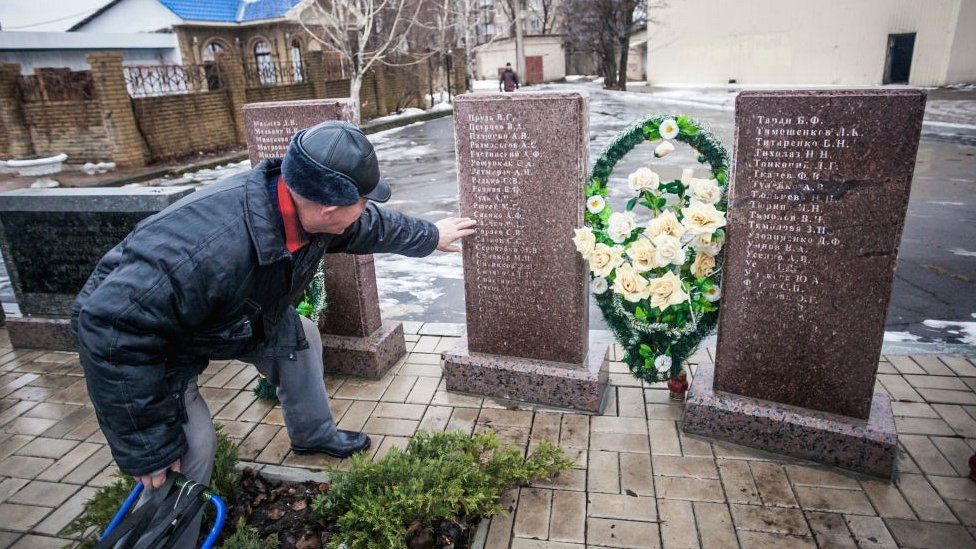
The United Nations Genocide Convention, ratified by 152 countries, including Russia, defines genocide as “acts committed with intent to destroy, in whole or in part, a national, ethnical, racial or religious group”.
Examples include the killings in Rwanda and Srebrenica, it says.
But there is no evidence of genocide in eastern Ukraine. And Mr Putin’s claim has been dismissed by German Chancellor Olaf Scholz as “ridiculous”.
The UN says states “have sometimes characterised certain incidents or periods of violence as genocide” but these “characterisations cannot be treated as authoritative or determinative”.
There is a continuing conflict in eastern Ukraine, however.
The UN estimates 14,200-14,400 people were killed in eastern Ukraine between 14 April 2014, when the conflict started, and 21 February 2022, including:
- at least 3,407 civilians
- 4,400 Ukrainian forces personnel
- 6,500 members of armed groups
Up to 39,000 people have been injured, an estimated 7,000-9,000 of them civilians.
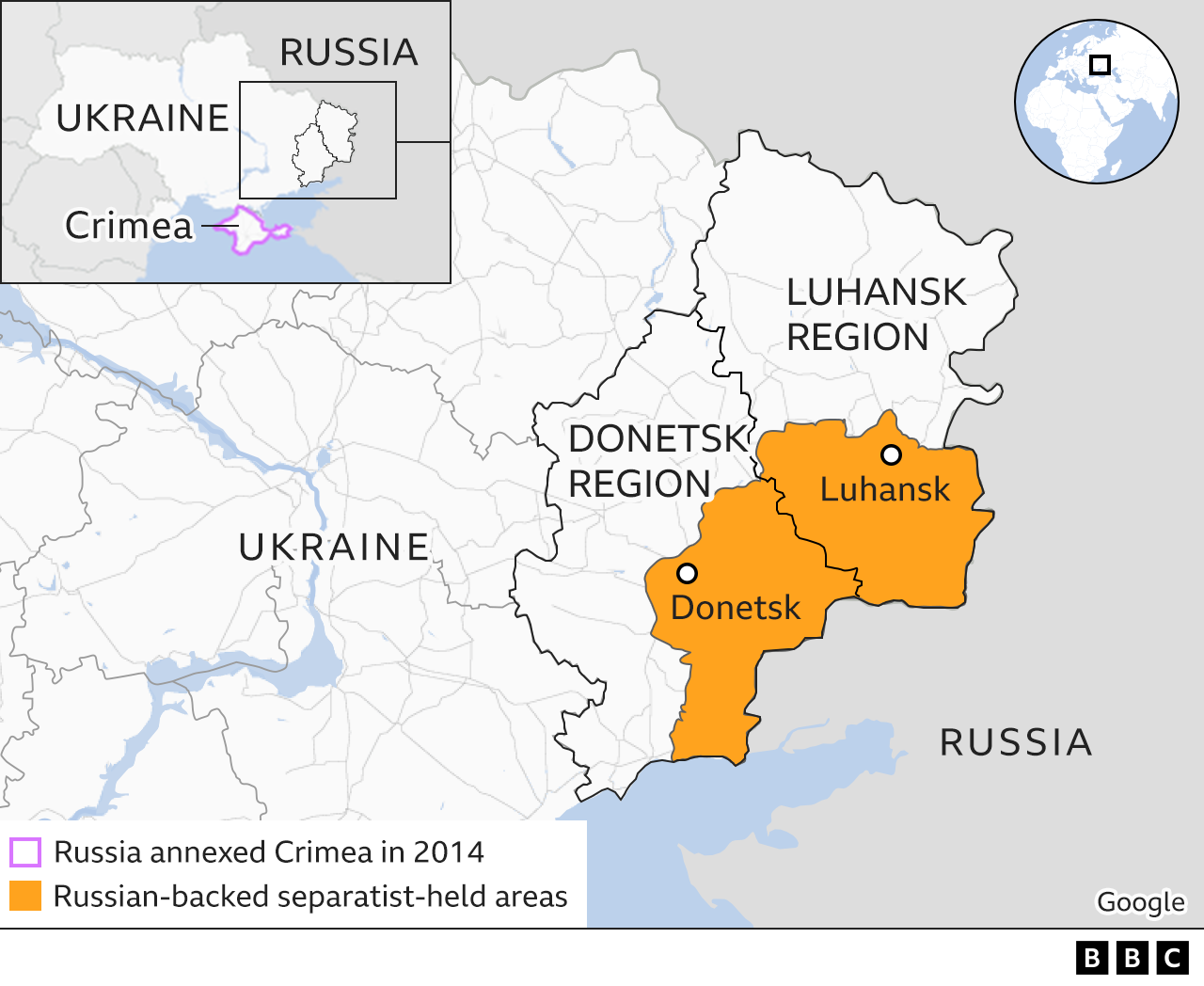
And in 2018, the International Crisis Group think tank found about 600,000 people – on both sides of the front lines – lived in unsafe settlements “where they are exposed daily to shelling, landmines, and tight restrictions on freedom of movement and basic services”.
“There have already been statements that Ukraine is going to create its own nuclear weapons… Ukraine does indeed still have Soviet nuclear technologies and [the] means of delivering such weapons”
At a security conference for world leaders last week, Ukrainian President Volodymyr Zelensky said: “We don’t have these weapons.”
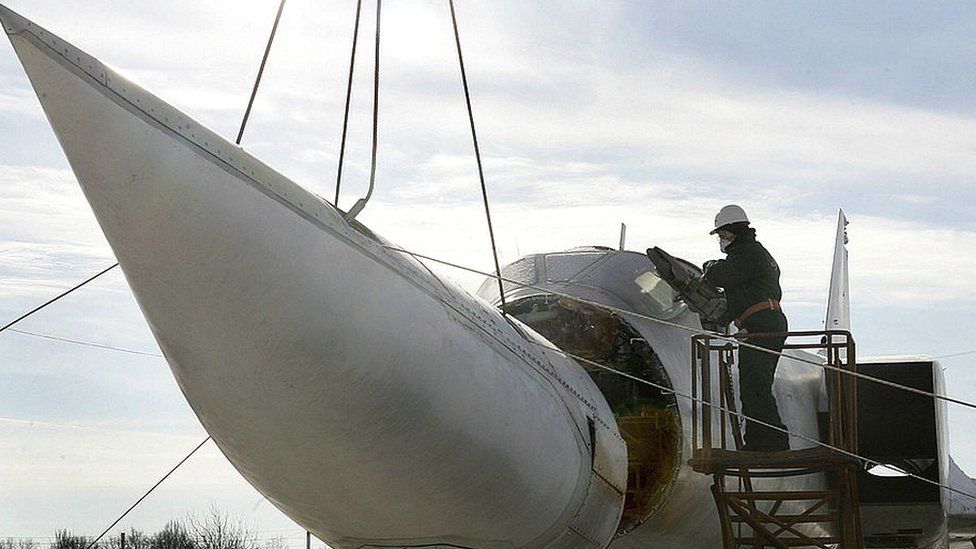
Ukraine – which had the third biggest nuclear arsenal in the world during the Cold War – gave up its nuclear weapons in the 1990s in return for security guarantees from the US, UK and Russia.
And it currently has no means of delivering nuclear weapons by air or any nuclear warheads that could be delivered by missiles, according to defence experts.
Last year, the Ukrainian ambassador to Germany, Andriy Melnyk, suggested if Ukraine was unable to join Nato, it might have to reconsider its nuclear-free status.
And this issue has reportedly become more prominent in public discussion following the conflict that erupted in eastern Ukraine and the Russian annexation of Crimea, in 2014.
But the government has not said that it intends to return to having nuclear weapons and a revised military strategy published last year did not mention acquiring any.
The UN’s nuclear watchdog, the International Atomic Energy Agency (IAEA), told us that it had seen no signs in Ukraine “of the diversion of nuclear material, intended for peaceful activities, for other purposes.”
“Corruption, which, without a doubt, is a challenge and a problem for many countries, including Russia, has acquired some kind of special character in Ukraine”
Russia is the lowest-rated European country in Transparency International’s Corruption Perceptions Index (CPI) for 2021 – ranking 136th out of 180 countries worldwide, while Ukraine ranks 122nd.
Ukraine’s performance has improved significantly in the past decade, according to the organisation.
But Ilia Shumanov, of Transparency International Russia, says: “Russia’s score… reflects the lack of systemic positive changes in the anti-corruption field.”
“Over 60,000 doctors and other health workers have left the country during the pandemic”
This claim appears to be based on a report published in March 2021 by the Razumkov Centre, a Ukrainian polling company, which says: “According to experts, since the beginning of 2020, 66,000 doctors and healthcare workers have left Ukraine.”
As of February 2021, about 34,000 of these were doctors registered in the Ukrainian healthcare system who had quit since the start of the pandemic, according to Ukraine’s former Healthcare Minister Maksym Stepanov.
A doctor in Kyiv earns about £17,000 ($23,000) a year, according to the Economic Research Institute, compared with £45,000 in neighbouring Poland.
No official statistics track which countries Ukrainian doctors go on to work in – but healthcare employers report rapid growth in the number wishing to work in Poland, the Czech Republic, and Slovakia.

